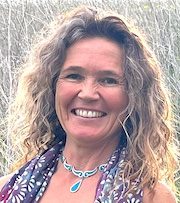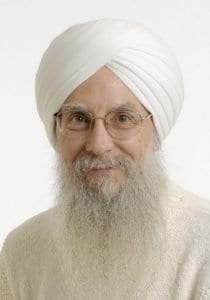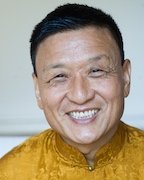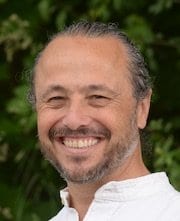Jul 19, 2022
A live online dialog with Laura Schmalzl, Sat Bir Singh Khalsa, Geshe Tenzin Wangyal, and host Alejandro Chaoul-Reich
About one in five U.S. adults practices some form of yoga. An ancient Indian practice with asanas (body postures) and pranayama (breathing practices), yoga is well known for its many health benefits. Just how do yoga-based practices help us to think more clearly, balance our emotions, and improve our bodily awareness? Can we view the breath as one of yoga’s active ingredients? Invited presenters draw on their clinical and academic expertise and their experience as practitioners and teachers as they discuss the future of yoga in health care, its importance as a body-breath-mind practice, and the key role of the breath.
View on Facebook to join the chat.
The CyberSangha broadcast is part of “Bring Body, Speech & Mind to Life,” a free yearlong program of live teachings, practices, and science & spirituality dialogs. Learn more
About the Presenters
 Laura Schmalzl, Ph.D., is a clinical neuropsychologist and cognitive neuroscientist, as well as a longtime yoga practitioner and certified yoga instructor. Born and raised in Italy, Laura obtained a B.A. in psychology from the University of Padua. She then completed a masters in clinical neuropsychology, a Ph.D. in cognitive science, and post-doctoral training in cognitive neuroscience at Macquarie University in Sydney, Australia. This was followed by further post-doctoral training and research at the Karolinska Institute in Stockholm, Sweden; and the University of California San Diego; as well as an associate professorship at Southern California University of Health Sciences. Laura’s work over the past decade has largely been motivated by her interest in combining her clinical and academic training with her passion for practicing and teaching yoga. From a research perspective, her interests lie in furthering an understanding of the mechanisms through which yoga-based practices impact body awareness, emotional self-regulation, and cognitive functioning. In educational settings, Laura implemented yoga as an experiential learning tool within the neuroscience curriculum for medical students. She also served for six years as co-editor in chief of the International Journal of Yoga Therapy, and has been part of the contemplative faculty for the Mind & Life Institute. Laura is now based in Santa Barbara, Calif., where she is currently completing her yoga therapy certification.
Laura Schmalzl, Ph.D., is a clinical neuropsychologist and cognitive neuroscientist, as well as a longtime yoga practitioner and certified yoga instructor. Born and raised in Italy, Laura obtained a B.A. in psychology from the University of Padua. She then completed a masters in clinical neuropsychology, a Ph.D. in cognitive science, and post-doctoral training in cognitive neuroscience at Macquarie University in Sydney, Australia. This was followed by further post-doctoral training and research at the Karolinska Institute in Stockholm, Sweden; and the University of California San Diego; as well as an associate professorship at Southern California University of Health Sciences. Laura’s work over the past decade has largely been motivated by her interest in combining her clinical and academic training with her passion for practicing and teaching yoga. From a research perspective, her interests lie in furthering an understanding of the mechanisms through which yoga-based practices impact body awareness, emotional self-regulation, and cognitive functioning. In educational settings, Laura implemented yoga as an experiential learning tool within the neuroscience curriculum for medical students. She also served for six years as co-editor in chief of the International Journal of Yoga Therapy, and has been part of the contemplative faculty for the Mind & Life Institute. Laura is now based in Santa Barbara, Calif., where she is currently completing her yoga therapy certification.
 Sat Bir Singh Khalsa, Ph.D., is the director of yoga research for the Yoga Alliance and the Kundalini Research Institute, a research associate at the Benson Henry Institute for Mind Body Medicine, a research affiliate of the Osher Center for Integrative Medicine, and an associate professor of medicine at Harvard Medical School at Brigham and Women’s Hospital in Boston. He has conducted research on yoga and yoga therapy since 2001 and has been a practitioner/instructor of kundalini yoga since 1973. His research has evaluated yoga interventions for insomnia, chronic stress, and anxiety-related disorders, including in workplace and public-school settings. He works with the International Association of Yoga Therapists to promote yoga research as scientific director for the annual Symposium on Yoga Research and as editor-in-chief of the International Journal of Yoga Therapy. He is medical editor of the Harvard Medical School Special Report An Introduction to Yoga and chief editor of the medical textbook The Principles and Practice of Yoga in Health Care.
Sat Bir Singh Khalsa, Ph.D., is the director of yoga research for the Yoga Alliance and the Kundalini Research Institute, a research associate at the Benson Henry Institute for Mind Body Medicine, a research affiliate of the Osher Center for Integrative Medicine, and an associate professor of medicine at Harvard Medical School at Brigham and Women’s Hospital in Boston. He has conducted research on yoga and yoga therapy since 2001 and has been a practitioner/instructor of kundalini yoga since 1973. His research has evaluated yoga interventions for insomnia, chronic stress, and anxiety-related disorders, including in workplace and public-school settings. He works with the International Association of Yoga Therapists to promote yoga research as scientific director for the annual Symposium on Yoga Research and as editor-in-chief of the International Journal of Yoga Therapy. He is medical editor of the Harvard Medical School Special Report An Introduction to Yoga and chief editor of the medical textbook The Principles and Practice of Yoga in Health Care.
More about Sat Bir Singh Khalsa, Ph.D.
 Geshe Tenzin Wangyal Rinpoche was born in India in 1961, following his parents’ journey from Tibet to India in 1959. At age 11 he began formal studies as a monk at Menri Monastery near Dolanji, India, where he completed an 11-year course of traditional studies at the Bön Dialectic School. He was awarded his geshe degree in 1986. He now lives as a householder, and has been living and teaching in the West for more than 30 years. An accomplished scholar in all aspects of sutra, tantra and dzogchen, Rinpoche is an acclaimed author and a respected teacher of students worldwide. As the founder and spiritual director of Ligmincha International, he has established numerous centers and institutes of learning in the United States, Mexico, South America, Europe and India. Fluent in English, Rinpoche regularly offers online teachings in the form of live webcasts, online workshops and YouTube videos. He is renowned for his depth of wisdom; his clear, engaging teaching style; and his dedication to making the ancient Tibetan teachings highly accessible and relevant to the lives of Westerners.
Geshe Tenzin Wangyal Rinpoche was born in India in 1961, following his parents’ journey from Tibet to India in 1959. At age 11 he began formal studies as a monk at Menri Monastery near Dolanji, India, where he completed an 11-year course of traditional studies at the Bön Dialectic School. He was awarded his geshe degree in 1986. He now lives as a householder, and has been living and teaching in the West for more than 30 years. An accomplished scholar in all aspects of sutra, tantra and dzogchen, Rinpoche is an acclaimed author and a respected teacher of students worldwide. As the founder and spiritual director of Ligmincha International, he has established numerous centers and institutes of learning in the United States, Mexico, South America, Europe and India. Fluent in English, Rinpoche regularly offers online teachings in the form of live webcasts, online workshops and YouTube videos. He is renowned for his depth of wisdom; his clear, engaging teaching style; and his dedication to making the ancient Tibetan teachings highly accessible and relevant to the lives of Westerners.
More about Tenzin Wangyal Rinpoche
 Alejandro Chaoul-Reich, Ph.D. (host) has studied in the Tibetan traditions since 1989, and for nearly 30 years in the Bön Tradition with Yongdzin Tenzin Namdak Rinpoche, His Holiness Lungtok Tenpai Nyima Rinpoche, and Tenzin Wangyal Rinpoche. He holds a Ph.D. in Tibetan religions from Rice University and is the director of the Mind Body Spirit Institute at the Jung Center of Houston. For the last 20 years he has been teaching and researching the benefits of Tibetan mind-body practices for people touched by cancer. Alejandro is a Contemplative Fellow at the Mind & Life Institute, and is the author of Chöd Practice in the Bön Tradition (Snow Lion, 2009), Tibetan Yoga for Health & Well-Being (Hay House, 2018), and Tibetan Yoga: Magical Movements of Body, Breath, and Mind (Wisdom Publications, 2021).
Alejandro Chaoul-Reich, Ph.D. (host) has studied in the Tibetan traditions since 1989, and for nearly 30 years in the Bön Tradition with Yongdzin Tenzin Namdak Rinpoche, His Holiness Lungtok Tenpai Nyima Rinpoche, and Tenzin Wangyal Rinpoche. He holds a Ph.D. in Tibetan religions from Rice University and is the director of the Mind Body Spirit Institute at the Jung Center of Houston. For the last 20 years he has been teaching and researching the benefits of Tibetan mind-body practices for people touched by cancer. Alejandro is a Contemplative Fellow at the Mind & Life Institute, and is the author of Chöd Practice in the Bön Tradition (Snow Lion, 2009), Tibetan Yoga for Health & Well-Being (Hay House, 2018), and Tibetan Yoga: Magical Movements of Body, Breath, and Mind (Wisdom Publications, 2021).

It was wonderfull, thank you very much